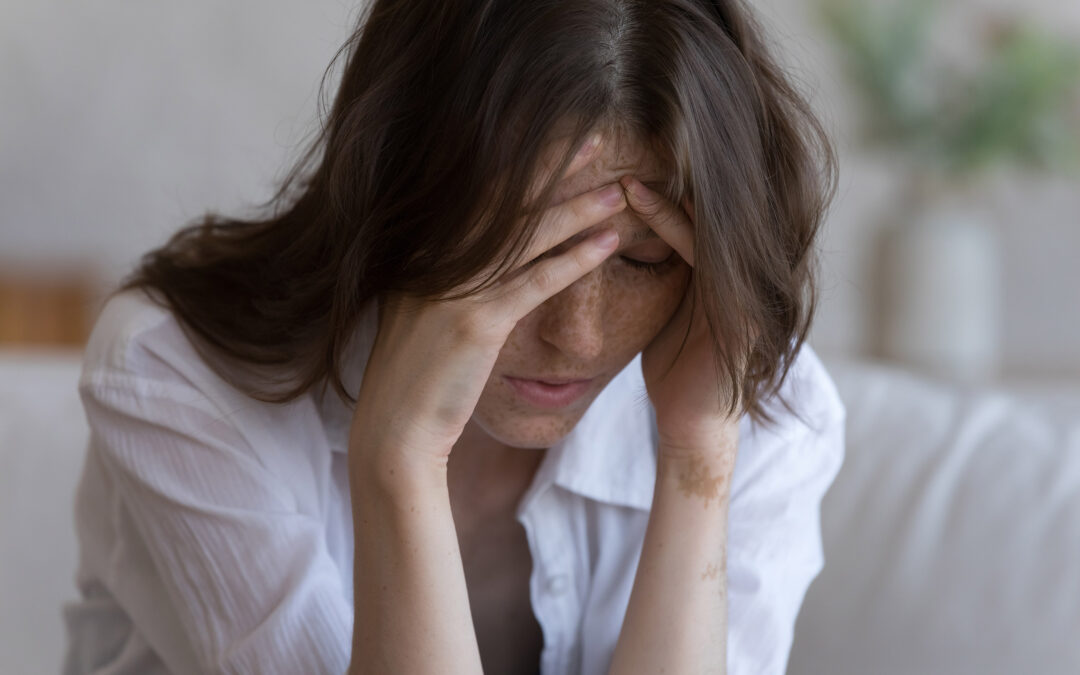A mere decade ago, holistic medicine largely overlooked the intricacies of endocrine challenges the thyroid or adrenal glands pose. Nearly all dis ‘ease’ can be linked to the endocrine system, so we must address issues early on. Exhaustion has long been a mother’s companion throughout history, given the monumental tasks they shoulder. Yet, today, crippling exhaustion is not just a commonplace feeling but a serious issue linked to widespread endocrine weaknesses. Why are we all so exhausted?
Many women endure debilitating exhaustion beyond the ordinary tiredness, and those who don’t experience it may dismiss it as mere fatigue. However, the reality is far more profound. Allopathic medicine is lagging in addressing this matter adequately, and many scoff at the term adrenal fatigue altogether. Doctors often resort to blood tests, providing a limited perspective on endocrine health. Thyroid tests may yield average results, leaving many women frustrated and dismissed, with their symptoms labeled as psychological.
Ladies, how often have you been told it is all in your head?!?!
The United States, unfortunately, ranks high in stress levels due to its demanding work culture. Shockingly, working mothers in the U.S. receive a pitiful six weeks of paid leave after childbirth, compared to European countries offering up to 20 weeks. Moreover, 85.8% of males and 66.5% of females in the U.S. work over 40 hours per week, making it the most overworked nation globally. Vacation time is often not even taken. In the United States, a concerning trend persists where many Americans do not take advantage of their vacation time. How can this be?
Despite having earned time off, many individuals either forgo their vacations altogether or hesitate to use the full extent of their allowed leave. This phenomenon is caused by workplace culture, fear of falling behind in workload, being seen negatively by coworkers, and the relentless pursuit of professional success. Unfortunately, this lack of vacation utilization increases stress, burnout, and potential long-term health issues, emphasizing the importance of promoting a healthier work-life balance for overall well-being.
Living through a pandemic has been like enduring a never-ending storm, triggering our primal fight, flight or freeze responses day after day. The persistent uncertainty, the constant adaptation to new norms, and the relentless news cycle create a background hum of stress that keeps our bodies alert. It’s a survival mode that, over time, takes a toll on our mental and physical well-being. Living in the freeze of those moments of uncertainty where we feel paralyzed by the weight of it all is a survival dance that we’ve all been part of for years, and it has left many feeling emotionally drained and physically exhausted.
As we age, many begin to see that they wish they could go back in time and make the changes needed to benefit their physical and mental wellness before it is too late. To address this alarming issue, a holistic approach is imperative. The endocrine system, encompassing various glands like the thyroid, adrenal, and pituitary glands, plays a crucial role. The thyroid, often called the body’s master metabolic control center, influences vital functions such as brain, heart, and kidney function, body temperature, growth, and muscle strength.
Recognizing the symptoms of adrenal fatigue is vital, as it often follows thyroid issues. Exhaustion beyond the norm, cravings for salty foods, difficulty concentrating, trouble sleeping, feeling that proverbial second wind in the evenings, heart palpitations, weight gain, and recurrent colds indicate adrenal weakness (not an all-inclusive list). Understanding these signs is crucial for seeking proper medical attention.
Exercise
Addressing the root causes involves lifestyle adjustments. Reducing cardiovascular activity and incorporating burst training, yoga, weight training, and walking is advisable. While diet and exercise culture tells us that cardiovascular exercise is king, cardiovascular training, like running, taxes the adrenal glands further. When weakened, our adrenal glands need to focus on less cortisol, and cardio floods the body with cortisol. Ideally, with each piece of burst training, you must allow your heart rate to come down before beginning again. If you need time to recover from cardio or it leaves you feeling totally depleted, your body is telling you it needs your attention.
Nutrition
Nutrition plays a pivotal role in the health of our endocrine system; maintaining balanced sugar levels through quality protein and fat while avoiding refined carbohydrates is crucial. Avoiding all grains is ideal, as is eating vegan while consuming healthy fats such as nuts and seeds, avocados, and coconut. If meat is a must, organic, pasture-raised is essential. Avoid farmed fish and conventional meat due to their high level of toxicity.
Eating smaller, frequent meals is recommended, especially during advanced stages of endocrine deficiencies. In addition, depending on your deficiency stage, there may be challenges absorbing nutrients due to a leaky gut phenomenon. Liquid vitamins are a great idea during this time. A few things you want to be sure you are getting in your daily diet are magnesium, zinc, complex B vitamins (especially B6), and a quality multivitamin while working on your gut health.
Stress and Sleep
Sleep is critical to recovery and establishing a consistent sleep routine. Teatime rituals, avoiding electronic devices before bedtime, and incorporating calming herbs like passionflower, lemon balm, and lavender can promote relaxation. Lifeholistically has a tincture that addresses the issues of sleep and stress called Happibliss. It is made from experience and intention. Magnesium lotion is also beneficial for sleep, aches, and pains and is advantageous to a healthy endocrine system.
My Abbreviated Story
I write all of this for complete transparency from a place of experience. If you want to get your adrenals tested, know that a one-period-in-time blood test is not the test you need. A blood test will not give you an accurate representation of the health of your adrenal glands throughout the day. I decided to share my test results from 2015 to show you where I was and where I stayed for a few years before restoring my health (they were scary times).
It took time, working with a specialist in California, a lot of emotional work, proper nutrition, and leaving behind many things. Many years later, I am armed with so much more knowledge and can now see things I did not see back then that kept me in a place of insufficiency. You can turn things around by being very health-focused and having radical honesty with yourself.
20240105_084328
Understanding the Results
Ideally, the body should wake in the morning with the highest cortisol level through the four measured times so you are awake feeling refreshed and ready to take on the day and will slowly do down, with the lowest reading being at the end of the night for restful sleep. The 13.4-24.0 nM/L range is the first reference range, and my results show 6.2 nM/L. From there, you can read on down.
I was dangerously low to where I felt like I was a dead weight the entire day. The best example I can give is that it felt as if there were cement blocks tied to my wrists and feet. If you are feeling this way day after day, it is time to pay attention and take action.
Aromatherapy
Aromatherapy offers a soothing pre-sleep ritual with a carefully crafted diffuser blend containing lavender, marjoram, ylang-ylang, and neroli. Studies show that this blend lowers cortisol levels, which is needed for quality sleep (Kim et al., 2012). Throughout the day, you will likely need something to give you a pick-me-up and, during times of higher stress, something entirely different. If you need assistance, I will share what worked for me and complete custom blending based on experience and science. Reach out at Lifeholistically@gmail.com
Self-Care
Managing stress involves accepting, removing unnecessary responsibilities, and avoiding self-imposed “shoulds.” Prioritizing self-care must be balanced. It’s an ongoing process, requiring education on essential oils, cautious use, and a commitment to well-being. While not a substitute for professional medical advice, these suggestions empower individuals to take charge of their health and well-being.
In conclusion, overcoming exhaustion, stress, and burnout is multifaceted, but it explains why we are all so exhausted. To do this, one must not only look at diet and exercise, but self-care and emotional burdens are also a big piece of the picture. This holistic approach, tailored to individual needs, emphasizes the importance of self-care, acknowledging the unique challenges faced by each person.
Reference
Kim, I.-H., Kim, C., Seong, K., Hur, M.-H., Lim, H. M., & Lee, M. S. (2012). Essential oil inhalation on blood pressure and salivary cortisol levels in prehypertensive and hypertensive subjects. Evidence-Based Complementary and Alternative Medicine, 2012, 1–9. https://doi.org/10.1155/2012/984203




